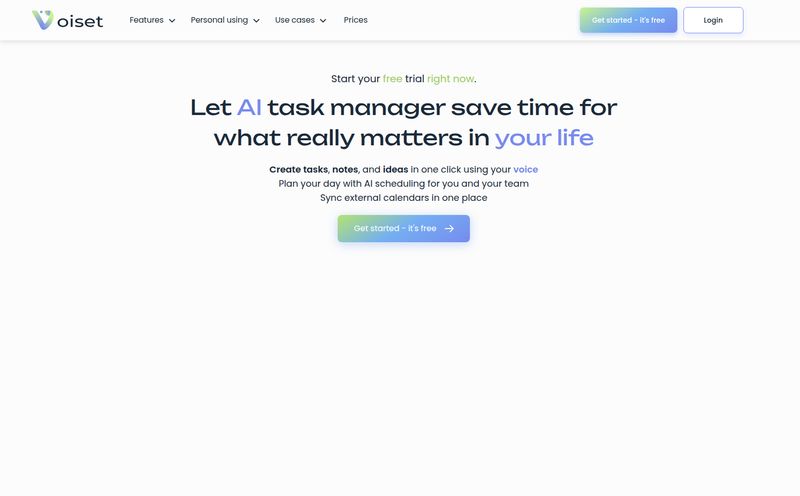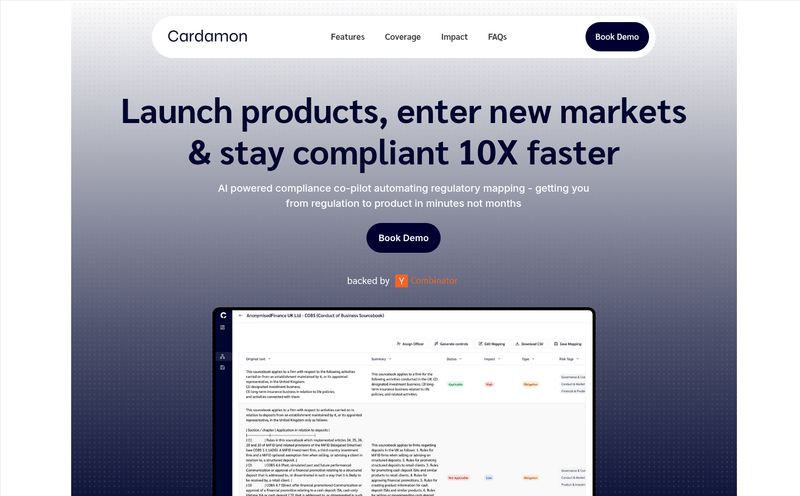If you’re a freelancer, a small business owner, or even just a department head, you’ve felt the pain. The slow, creeping dread of a 30-page PDF landing in your inbox with the subject line: “Pls review and sign.”
We’ve all been there, right? Staring at page 27 of a vendor agreement at 11 PM, your eyes glazing over the legalese, wondering if you’re accidentally signing away your firstborn child. I’ve spent more years than I care to admit navigating the murky waters of SEO and client contracts, and I’m always on the hunt for something, anything, to make that process less of a headache.
So, when I stumbled across a tool called LawCrawl, my interest was piqued. The promise was alluring: an AI-powered assistant to streamline contract review. My heart did a little pitter-patter. Could this be it? The holy grail?
I navigated to their site, full of hope and ready to be impressed. And then… BAM.
A cold, impersonal message: 503 Service Temporarily Unavailable.
Well, that’s a bit of a buzzkill. But you know what? It actually got me thinking more deeply. A great idea is still a great idea, even if the website is taking a nap. So, let's talk about the promise of LawCrawl, what it aims to do, and whether it’s a project worth keeping on your radar.
What Exactly is LawCrawl Supposed to Be?
From what I could gather before hitting the digital roadblock, LawCrawl sells a simple but powerful dream. It's designed to be your first line of defense when that intimidating document arrives. Think of it less as a robot lawyer and more as a super-smart junior paralegal who’s had way too much coffee and can read at the speed of light.

Visit LawCrawl
Its core function is twofold. First, it scans your document to identify “non-standard terms.” Second, it offers an AI chat assistant that has ingested the entire context of your document, allowing you to ask it specific questions. A pretty neat concept, I have to admit.
The Big Idea: AI Spotting the Red Flags
Let's chew on that first feature for a second. Identifying non-standard terms. Most contracts are 90% boilerplate—the same copy-and-pasted stuff you see everywhere. It’s the other 10% that can get you. The weird indemnity clause someone slipped in, the bizarre termination conditions, the unusual payment schedule. These are the landmines.
Our human brains are notoriously bad at spotting these deviations. We get lulled into a false sense of security by the familiar jargon. A tool that automatically flags anything out of the ordinary could be an absolute game-changer. Imagine uploading a contract and getting a report back in minutes: “Hey, the liability clause on page 12 is a bit weird. You might wanna look at that.” The amount of time and anxiety saved would be immense.
A Chatbot That Actually Knows Your Document
The second part of the equation is the chat assistant. Now, we're all familiar with generic AIs. You can paste a chunk of text into ChatGPT and ask it to summarize. But LawCrawl's proposition is a little different. It claims its AI is fine-tuned and has the full context of the specific document you uploaded.
This means you could, in theory, ask it much more pointed questions. Not just “What is an indemnity clause?” but “What are my specific obligations under the indemnity clause in this document?” or “Summarize my termination rights in simple english.” That’s a significant step up from a generic tool. It’s personalized intelligence.
The Good, The Bad, and The Unavailable
Like any tool, especially in the AI space, its not all sunshine and roses. Based on the info out there, we can piece together a pretty clear picture of its potential strengths and weaknesses.
The clear advantage is efficiency. It’s about taking a multi-hour manual process and shrinking it down to minutes. For businesses that handle a high volume of similar contracts, the ROI is obvious. It could free up legal teams to focus on high-level strategy instead of first-pass reviews.
But then there are the pitfalls. And one of them is a biggie.
First, an AI is not a seasoned lawyer. It might miss the subtle, between-the-lines nuance of a cleverly worded clause. It’s a powerful assistant, but you can’t (and shouldn't) blindly trust its output. This is not legal advice. It's a data-processor. Think of it like a metal detector on a beach. It’ll find most of the coins, but it might miss the antique diamond ring buried a little deeper. It also depends entirely on the quality of the AI model, which for LawCrawl, is a total black box right now.
And now for the elephant in the room: security. The tool works by you uploading your sensitive documents to their platform. In an age of data breaches and with regulations like GDPR, this gives me serious pause. Who are they? Where is the data stored? Is it encrypted at rest and in transit? Is the data used for training future models? These are critical questions that, given the website is down, remain completely unanswered. For me, that's a huge red flag until proven otherwise.
And What About the Price Tag?
Ah, the million-dollar question. Or, hopefully, a much more reasonable monthly subscription question. Unsurprisingly, with the site down, the pricing page was also a digital ghost town. There’s no information available on the cost.
One could speculate. Would it be a monthly fee for a certain number of documents? A pay-per-document model? Maybe a freemium tier to get you hooked? For a tool like this to gain traction, especially with solo practitioners and small businesses, the pricing would have to be very competitive. A high barrier to entry would kill it before it even got started.
Is It a Ghost Ship or Just Hitting a Squall?
So we come back to the 503 error. What does it mean? A 'Service Temporarily Unavailable' error is a server-side problem. It could be as simple as a botched update or a temporary overload. It could also mean the project has been abandoned and the server was shut down. Its a bit of a digital mystery.
It's a shame, because the concept is so strong. There’s a genuine need in the market for a tool exactly like LawCrawl. The name is catchy, the premise is solid. But execution is everything, and right now, the execution seems to be… well, offline.
Frequently Asked Questions about AI Contract Review
Can an AI tool like LawCrawl replace a human lawyer?
Absolutely not. Think of it as a powerful assistant or a first-pass screening tool. It can help you spot potential issues and understand your documents better, but it is no substitute for the nuanced judgment and advice of a qualified legal professional.
Is it safe to upload legal documents to an AI platform?
This is a critical question. It depends entirely on the platform's security measures. You should look for clear policies on data encryption, storage location, and privacy. For LawCrawl specifically, this information is currently unavailable, so caution is advised.
What does 'non-standard terms' mean in a contract?
These are clauses or specific wordings that differ from the typical, boilerplate language usually found in that type of agreement. They aren't necessarily bad, but they warrant a closer look because they represent a deviation from the norm.
How is a tool like LawCrawl different from using a generic AI like ChatGPT?
The main difference is specialization. LawCrawl is supposedly fine-tuned on legal documents and, more importantly, can analyze the full context of your specific document to provide tailored answers, rather than general information.
What does a '503 Service Unavailable' error usually mean?
It means the server that hosts the website is currently unable to handle the request. This could be due to scheduled maintenance, a crash, or being overwhelmed with traffic. It’s a server-side issue, not a problem with your computer or internet.
My Final Verdict... For Now
LawCrawl is a fantastic idea floating in the digital ether. It addresses a real, tangible pain point for a massive audience. The combination of red-flagging non-standard terms and offering a context-aware chat could make contract review faster and more accessible for everyone.
However, an idea is only as good as its execution. With the website down and major questions about security and pricing unanswered, LawCrawl is currently more of a promising ghost ship than a ready-to-sail vessel. I’m rooting for it, I really am. I’ll be keeping my eye on this one, hoping it comes back online and with clear answers to those crucial trust questions.
For now, the jury's out... and the courtroom is temporarily closed.
Reference and Sources
- Initial product information for LawCrawl was sourced prior to its website becoming unavailable.
- For more on the rise of AI in the legal profession, the ABA Journal offers ongoing coverage and analysis of legal technology trends.



